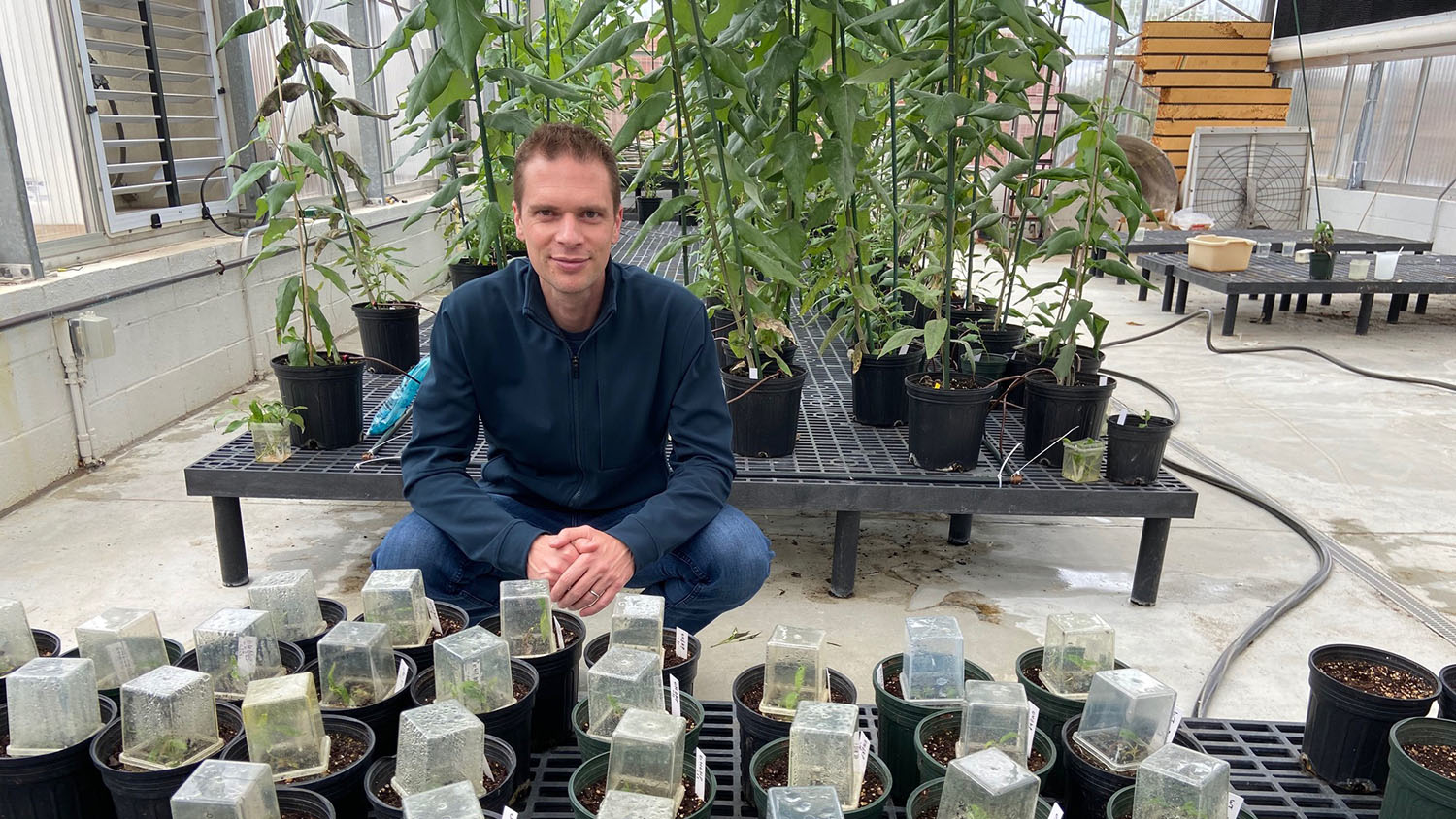A company founded by two NC State researchers is setting out to revolutionize the forestry industry by combining insights from tree genetics with the power of genome editing.
North Carolina is part of the nation’s wood basket. Forestry contributes over $32 billion to the N.C. economy, providing about 150,000 local jobs. Forests produce fiber, used for essential items such as bathroom tissue and printer paper; lumber for construction and furniture; and green chemicals.
Like farmers, foresters are facing plagues of invasive pests, increasingly severe storms and changing weather patterns. Unlike farmers, foresters have been slow to adopt new technologies such as genome editing that can mitigate these challenges. And breeding long-lived trees takes significantly longer than breeding annual crops.
Rodolphe Barrangou, the Todd R. Klaenhammer Distinguished Professor in Probiotics Research, is a pioneer in new technologies for safe, efficient and non-GMO genome editing. He is a co-founder of TreeCo.
“We believe that the challenges that are lying ahead of us — and are here today — warrant the use of disruptive technologies — like genome editing — to speed up the enhancement of tree traits that are beneficial to the environment, and valuable commercially,” said Barrangou. “We will combine our expertise in tree genetics and in genome editing technologies to democratize that technology for forestry.”
Jack Wang, an assistant professor in the Department of Forestry and Environmental Resources and co-founder of TreeCo, has extensive experience studying and computationally modeling which tree genes are responsible for important traits. Wang, and the College of Natural Resources, has elite breeding lines and seed banks of commercially important trees such as pines, firs, poplars, and hemlocks.
“We have identified several unique gene targets that could confer significant trait improvements in stress resistance, or for improved conversion of wood into a particular fiber or chemical product,” Wang said. “But before today, there has not been a feasible route to modify these genes that would enable trait improvement, particularly for commercial applications or ecosystem conservation. But new genome editing technologies will make forestry an efficient, robust industry that can meet the needs of society.”

In mid-May, Barrangou and six other finalists pitched their startups plans at Alexandria LaunchLabs’ inaugural (and virtual) AgTech Innovation competition.
While TreeCo was not selected for the $100,000 prize, the co-founders are forging ahead. Barrangou said, “For every no that we get, I’m that much more amped up to get a yes the next time.”
He added that trees take time to breed and a long time to grow, which may appear unusual and challenging for many investors. However, the timelines and processes particular to the forestry industry can be quite appealing to other investors focused on sustainability.
TreeCo past and future
Barrangou and Wang met about two years ago, and supported by the Chancellor’s Innovation Fund, have been working together on three proof-of-concept projects targeting different genes and traits for different forestry segments, such as lumber, chemical production and fiber production.

In fact, TreeCo conducted an economic analysis and found that their trees enhanced for pulping purposes, would save paper mills $27 per ton of paper. In other words, their trees with enhanced traits would reduce the cost of producing a ton of paper from $414 per ton to $387 per ton of paper by reducing energy-intensive bottlenecks. This would result in substantial long-term financial gains, especially given the large scale of forestry companies, Barrangou added.
Barrangou and Wang aim to build, and expand upon, non-exclusive partnerships with forestry companies to license their technology and trees with demonstrated enhanced traits, and see acres of TreeCo developed trees in the next two to five years.
“I anticipate that within five to six years, we will have generated a collection of unique and specialized trees targeting specific segments of the industry, whether it be for climate resilience, fiber production, bioenergy or timber,” Wang said. “Not only will TreeCo be the R&D engine of the forestry industry, but it will be this sort of shining light of hope. We will provide this amazing innovative technology to improve trees at a rate that is much faster, safer and more precise than any technology that is currently available and used in forestry.”
In order to help them reach that stage, Barrangou and Wang are seeking non-dilutive funding such as small business and start-up-specific federal grants as well as traditional federal funding to support their scientific research.
Our faculty Think and Do every day. Discover more amazing faculty.
- Categories:



